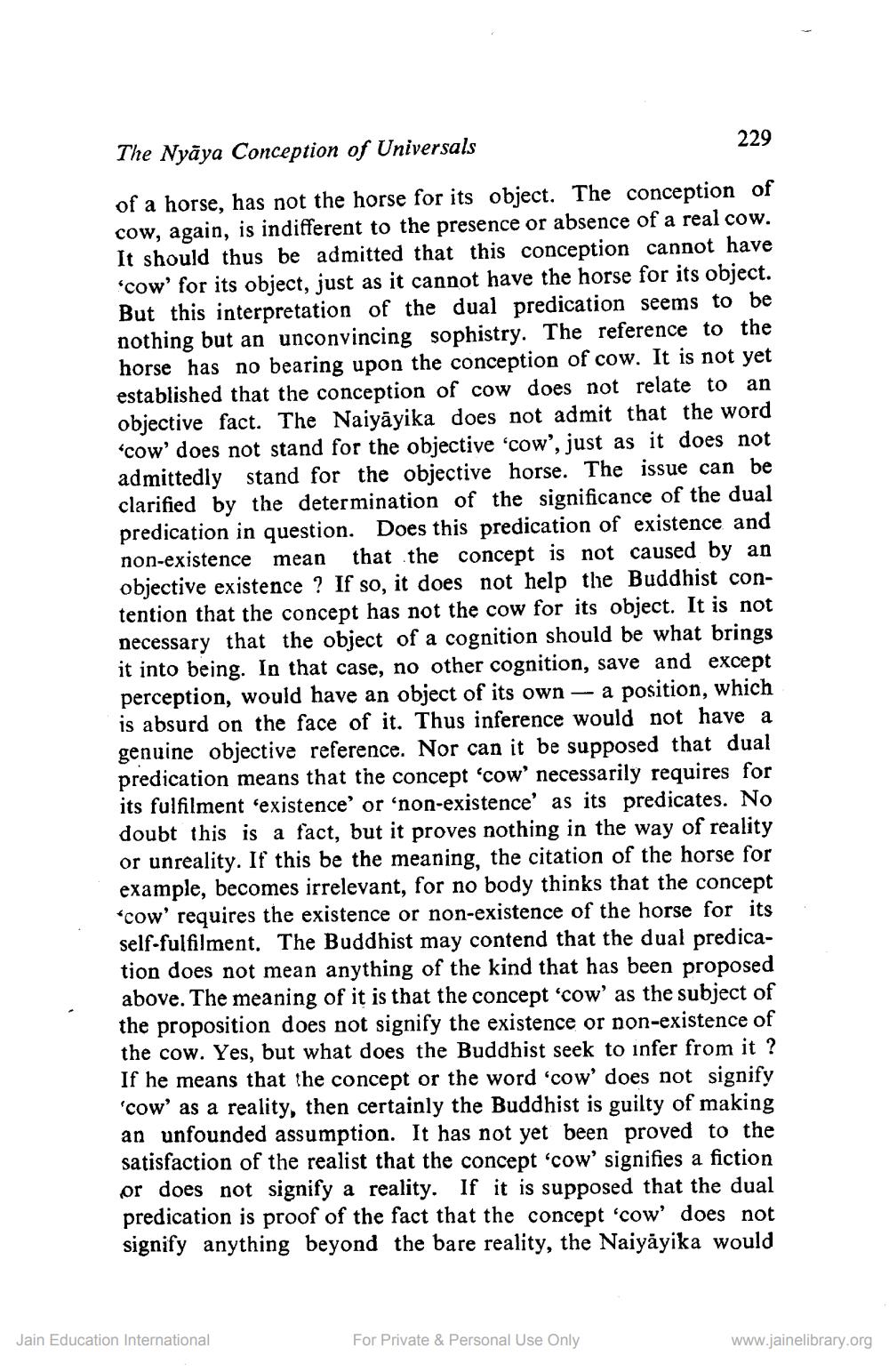________________
The Nyaya Conception of Universals
of a horse, has not the horse for its object. The conception of cow, again, is indifferent to the presence or absence of a real cow. It should thus be admitted that this conception cannot have 'cow' for its object, just as it cannot have the horse for its object. But this interpretation of the dual predication seems to be nothing but an unconvincing sophistry. The reference to the horse has no bearing upon the conception of cow. It is not yet established that the conception of cow does not relate to an objective fact. The Naiyayika does not admit that the word 'cow' does not stand for the objective 'cow', just as it does not admittedly stand for the objective horse. The issue can be clarified by the determination of the significance of the dual predication in question. Does this predication of existence and non-existence mean that the concept is not caused by an objective existence ? If so, it does not help the Buddhist contention that the concept has not the cow for its object. It is not necessary that the object of a cognition should be what brings it into being. In that case, no other cognition, save and except perception, would have an object of its own - a position, which is absurd on the face of it. Thus inference would not have a genuine objective reference. Nor can it be supposed that dual predication means that the concept 'cow' necessarily requires for its fulfilment 'existence' or 'non-existence' as its predicates. No doubt this is a fact, but it proves nothing in the way of reality or unreality. If this be the meaning, the citation of the horse for example, becomes irrelevant, for no body thinks that the concept 'cow' requires the existence or non-existence of the horse for its self-fulfilment. The Buddhist may contend that the dual predication does not mean anything of the kind that has been proposed above. The meaning of it is that the concept 'cow' as the subject of the proposition does not signify the existence or non-existence of the cow. Yes, but what does the Buddhist seek to infer from it ? If he means that the concept or the word 'cow' does not signify 'cow' as a reality, then certainly the Buddhist is guilty of making an unfounded assumption. It has not yet been proved to the satisfaction of the realist that the concept 'cow' signifies a fiction or does not signify a reality. If it is supposed that the dual predication is proof of the fact that the concept 'cow' does not signify anything beyond the bare reality, the Naiyayika would
Jain Education International
229
For Private & Personal Use Only
www.jainelibrary.org




